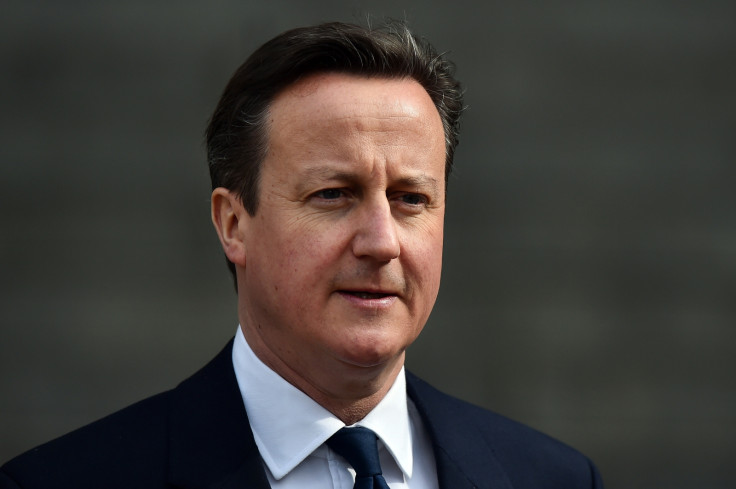Peter Cruddas: Former Tory treasurer 'offered access' to David Cameron rules Court of Appeal

A former co-treasurer of the Tories offered access to the David Cameron and other top Conservatives in exchange for donations of, the Court of Appeal has ruled.
The decision comes after the Sunday Times published three articles about millionaire businessman Peter Cruddas in March 2012.
The paper alleged he had offered its undercover reporters, who posed as Middle East investors and prospective Tory donors, "premier league" access to the prime minister and Chancellor George Osborne in exchange for up to £250,000 (€347,549, $368,750).
Cruddas, who was appointed Tory co-treasurer in June 2011, stood down from his role after the allegations came to light. The 61-year-old then sued Times Newspapers and Jonathan Calvert and Heidi Blake, members of the Sunday Times' investigations team, for libel.
A judge ruled in favour of Cruddas in 2013 and he won £180,000 in damages after Justice Tugendhat agreed the articles were defamatory. In addition, the businessman also won his claim for "malicious falsehood" but did not win any separate damages.
But on 17 March, three Court of Appeal judges reduced the libel damages from £180,000 to £50,000, meaning Cruddas will have to give back £130,000 plus interest by the end of the month.
Justice Jackson, who sat with Justice Ryder and Justice Christopher Clarke, also found Cruddas had "corruptly offered" access to the prime minister and other senior ministers.
"Cruddas was effectively saying to the journalists that if they donated large sums to the Conservative Party, they would have an opportunity to influence government policy and to gain unfair commercial advantage through confidential meetings with the prime minister and other senior ministers," the judge said.
"That was unacceptable, inappropriate and wrong. Therefore meaning one was substantially true. The defendants are not liable for libel or malicious falsehood in respect of meaning one. I should add that what Cruddas said at the meeting does not represent the true position of the Conservative party. The prime minister has dissociated himself and the party from what Cruddas said."
But the judges ruled Times Newspapers and the two journalists were still liable for "malicious falsehood" and libel for the allegation that he would illegally accept a donation from foreign donors.
The paper claimed the ruling had "vindicated" them and argued the articles were in the public interest.
"The Sunday Times and two of its journalists, Calvert and Blake, are today completely vindicated for reporting that Cruddas corruptly offered access to Cameron and other leading members of the government in exchange for donations to the Conservative party," a statement read.
"As party treasurer, he told the undercover reporters that if they made substantial donations to the party they would have an opportunity to influence government policy and to gain unfair commercial advantage through confidential meetings. The Court of Appeal has found that proposing this was unacceptable, inappropriate and wrong.
This was an important public interest story. Our journalists acted with professionalism and integrity and with the full support of the newspaper's editors and lawyers. They and the newspaper have fought this case for three years.
"This was an important public interest story. Our journalists acted with professionalism and integrity and with the full support of the newspaper's editors and lawyers. They and the newspaper have fought this case for three years.
"Today's judgment confirms that journalism, and in particular undercover journalism, plays a key role in exposing the conversations behind closed doors which public mistrust. In so doing, it serves a vital purpose in a democracy."
But Cruddas hit back and said the ruling was not a victory for the Sunday Times and argued the paper's journalists "remain condemned as malicious".
"Naturally I am disappointed that the Court of Appeal has allowed part of the Sunday Times' appeal, but it is some consolation that I remain the overall winner of my action," he said.
"The court has said that the newspaper failed 'by a wide margin' to justify their suggestion that I was prepared to break UK electoral law by accepting foreign donations.
"What is more, they have confirmed that based on the judge's assessment of the oral evidence which he heard from the Sunday Times journalists, there is no basis for overturning his decision that they were malicious and knew that suggestion to be untrue.
"This is no victory for the Sunday Times when they still have to pay me damages, and their journalists remain condemned as malicious."
© Copyright IBTimes 2025. All rights reserved.






















